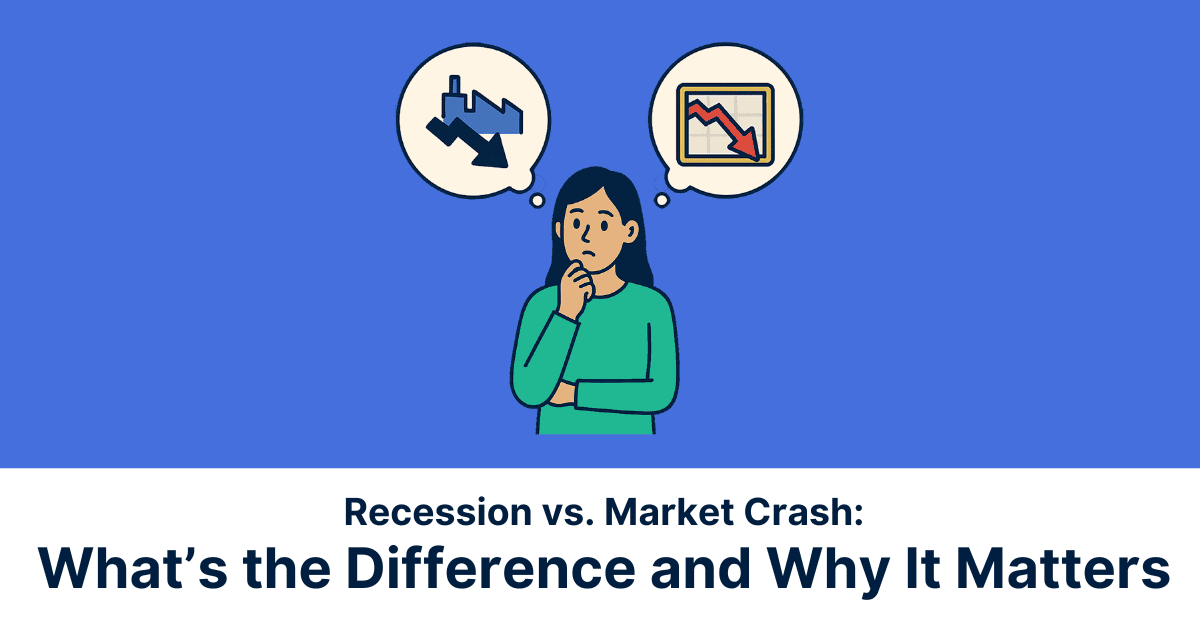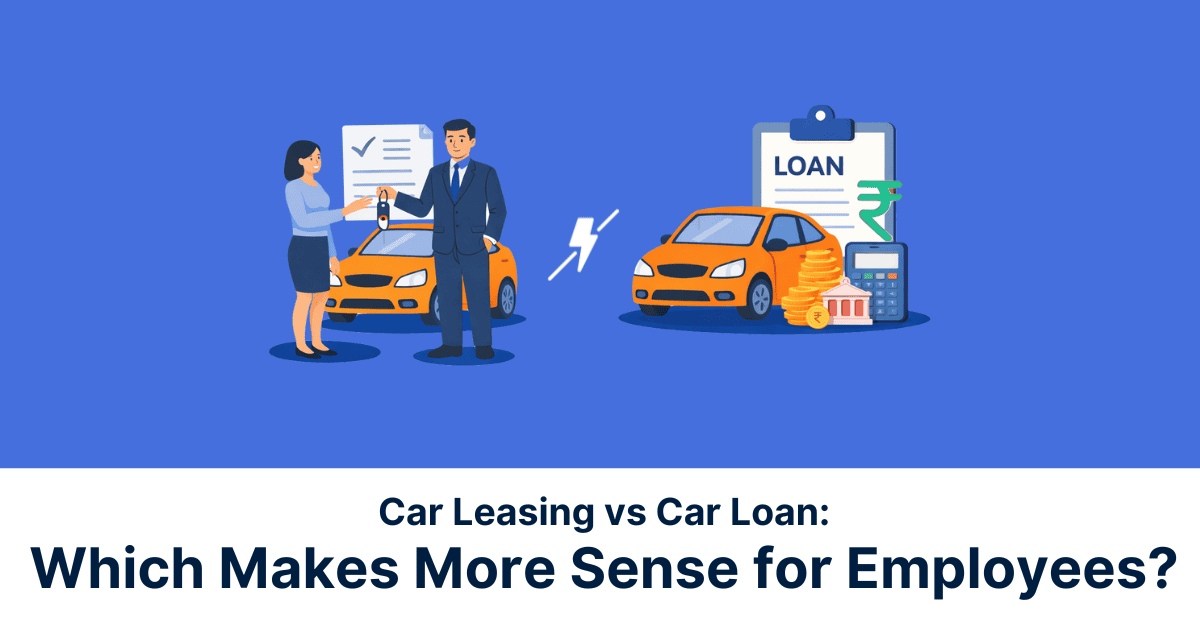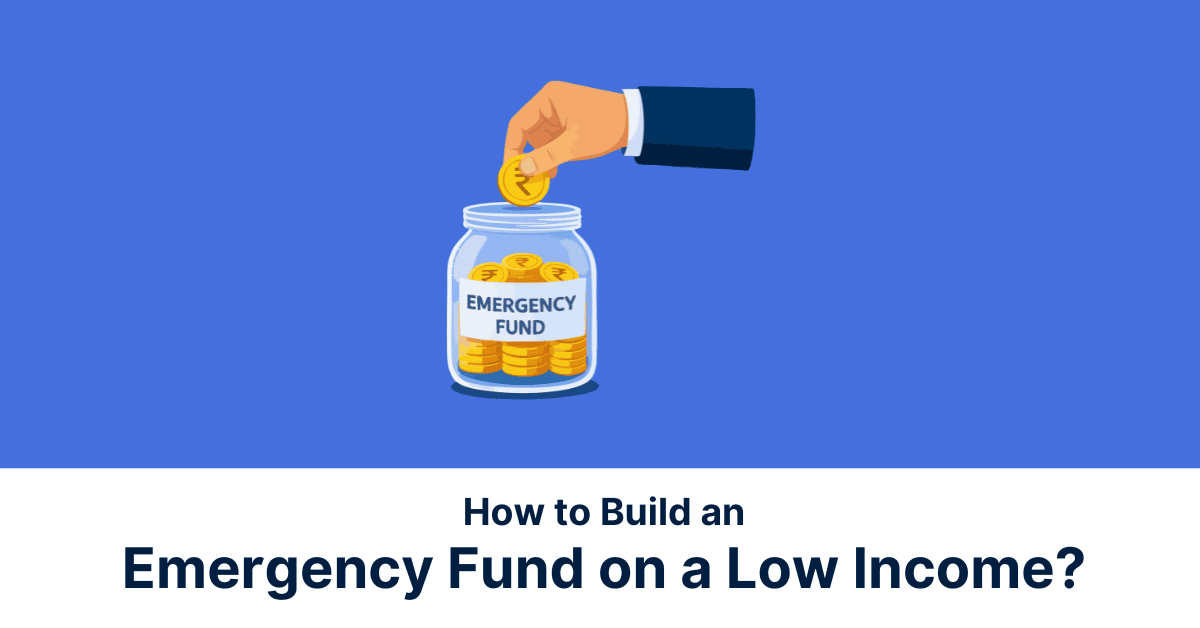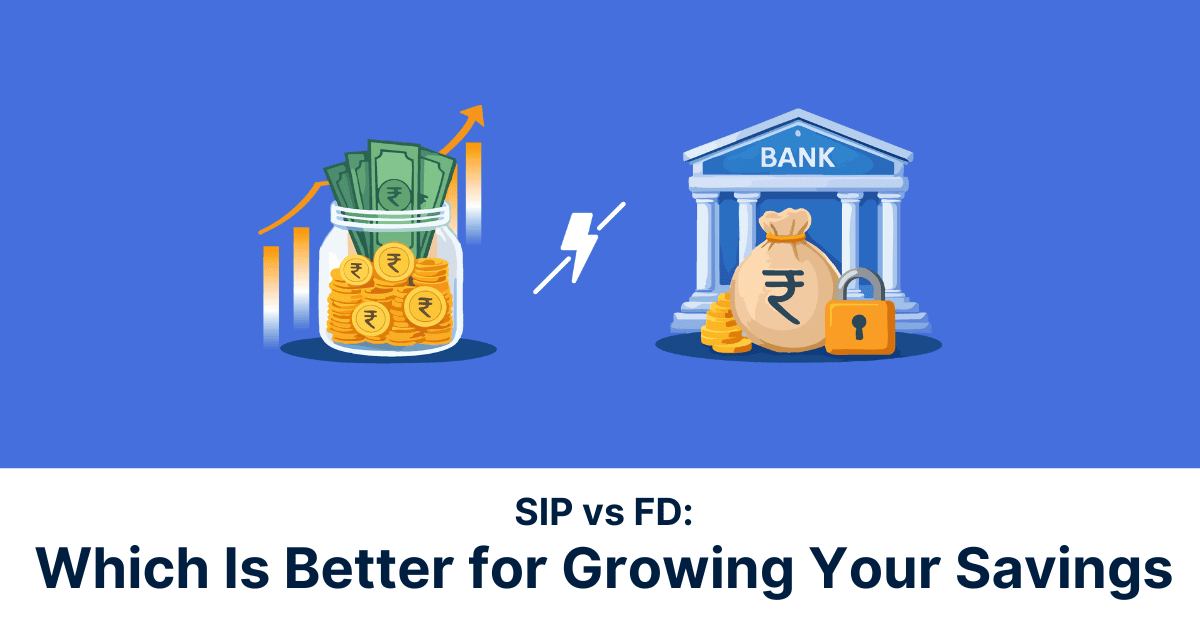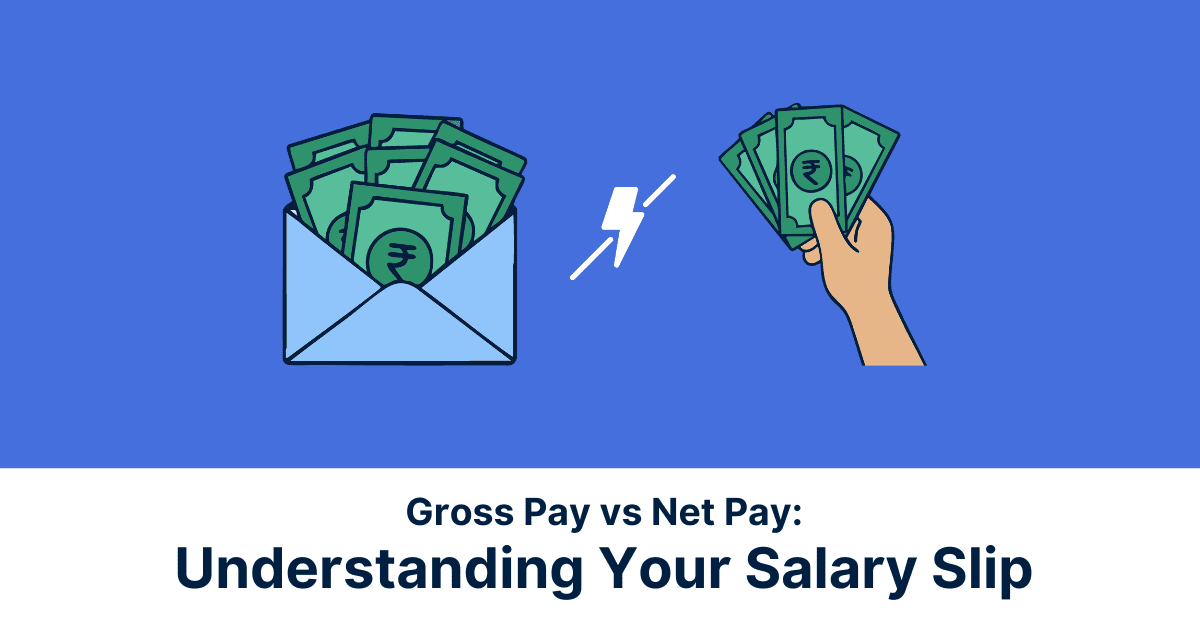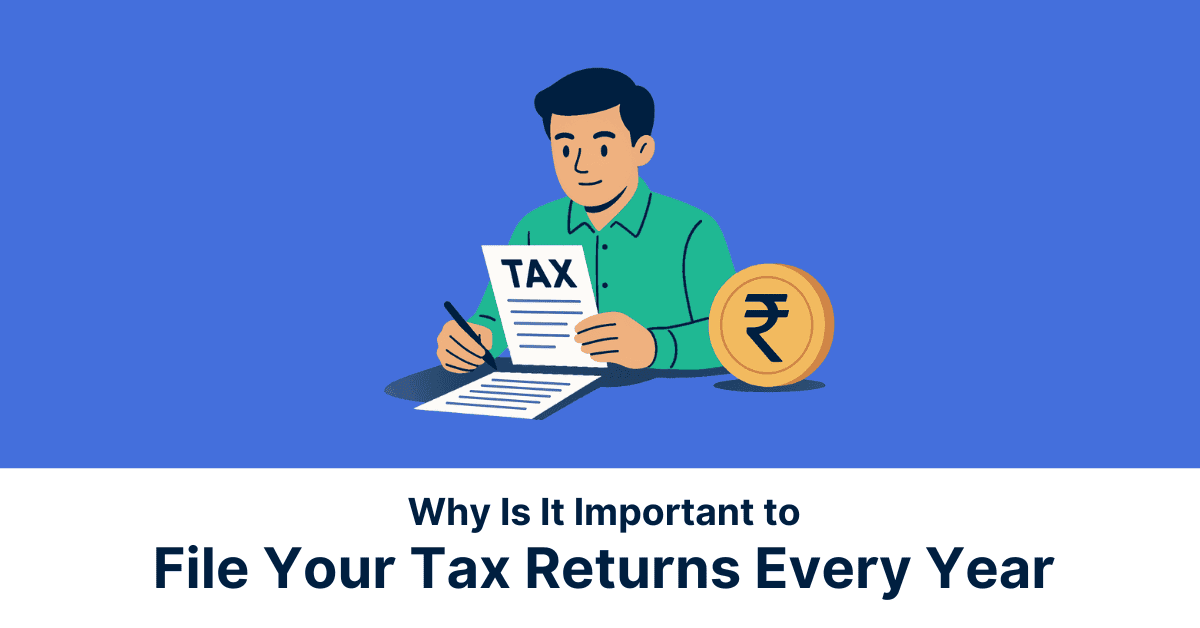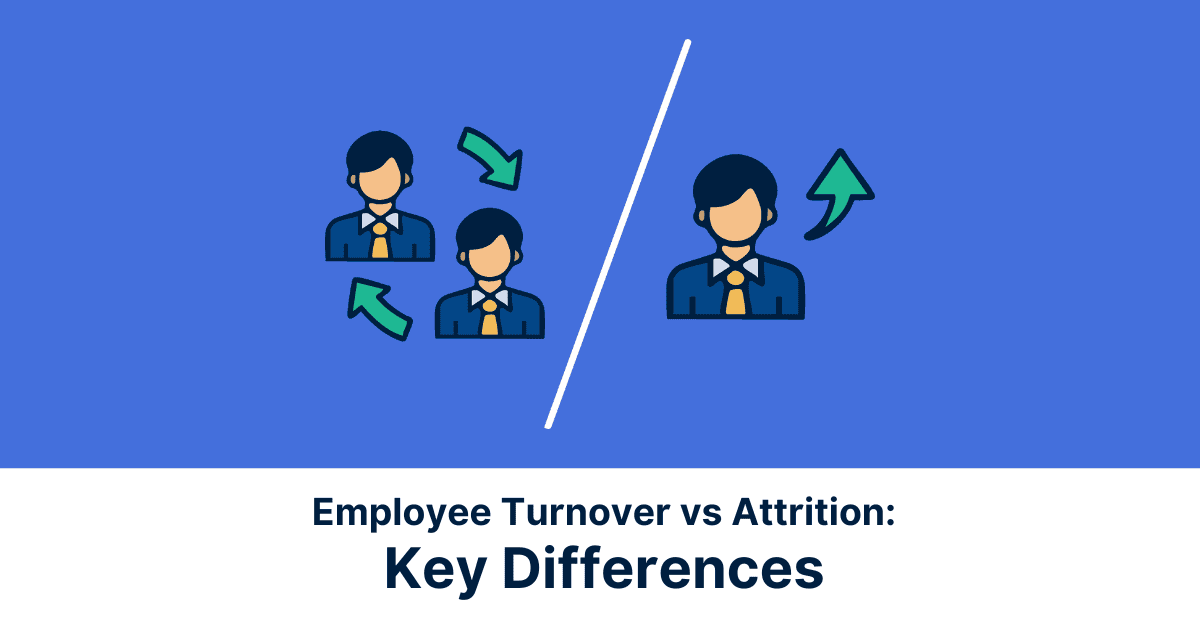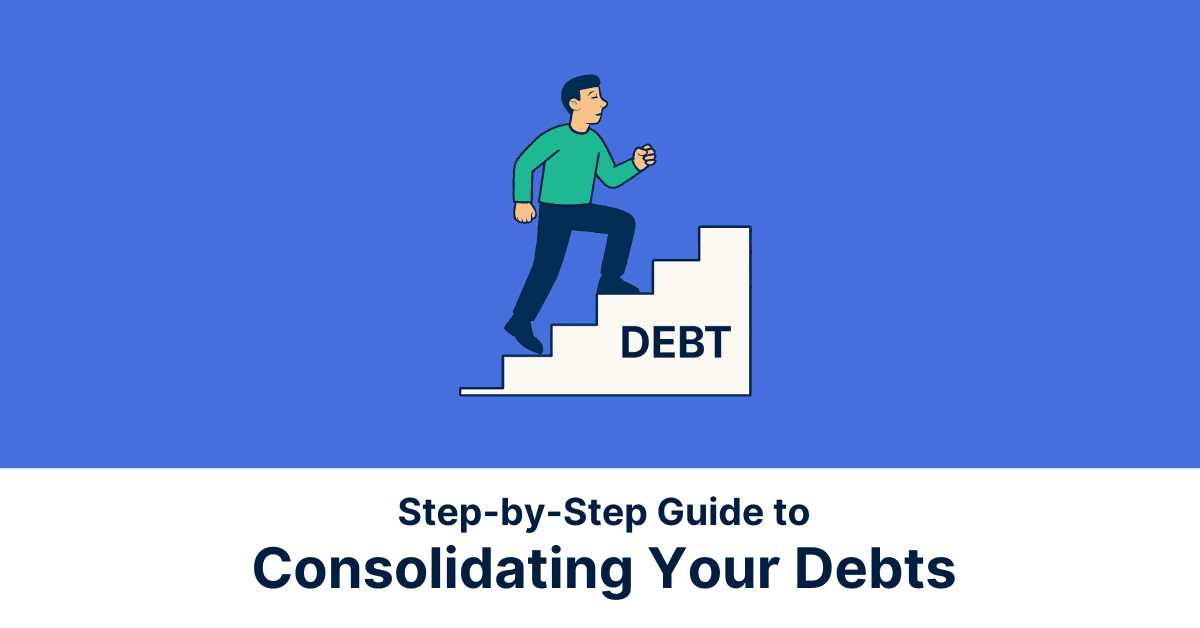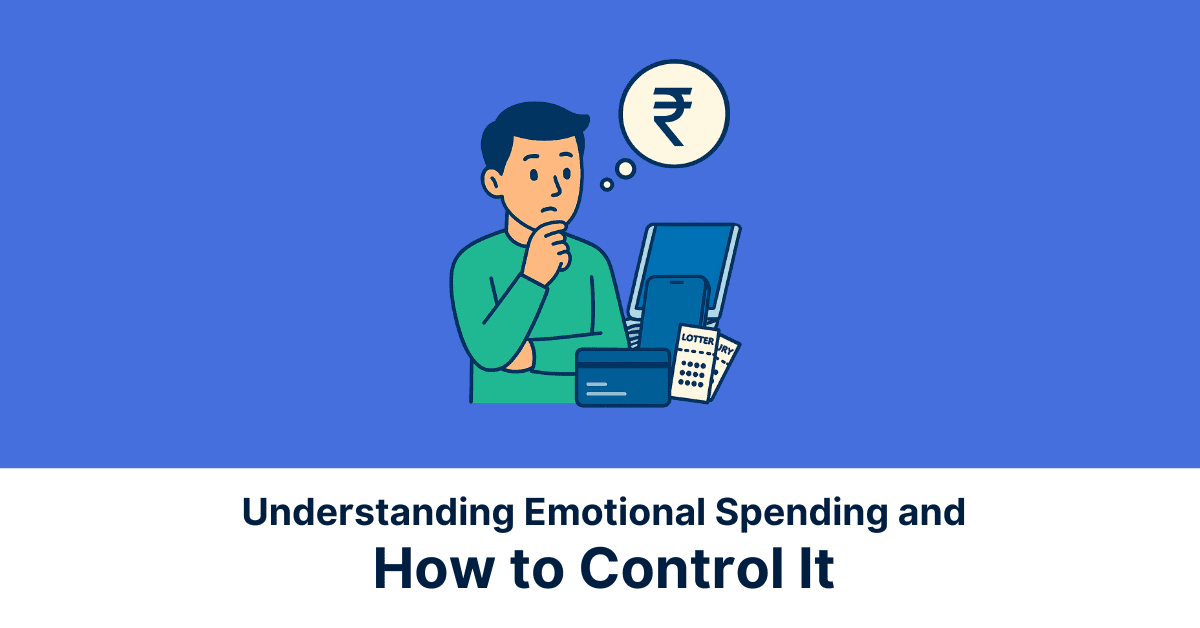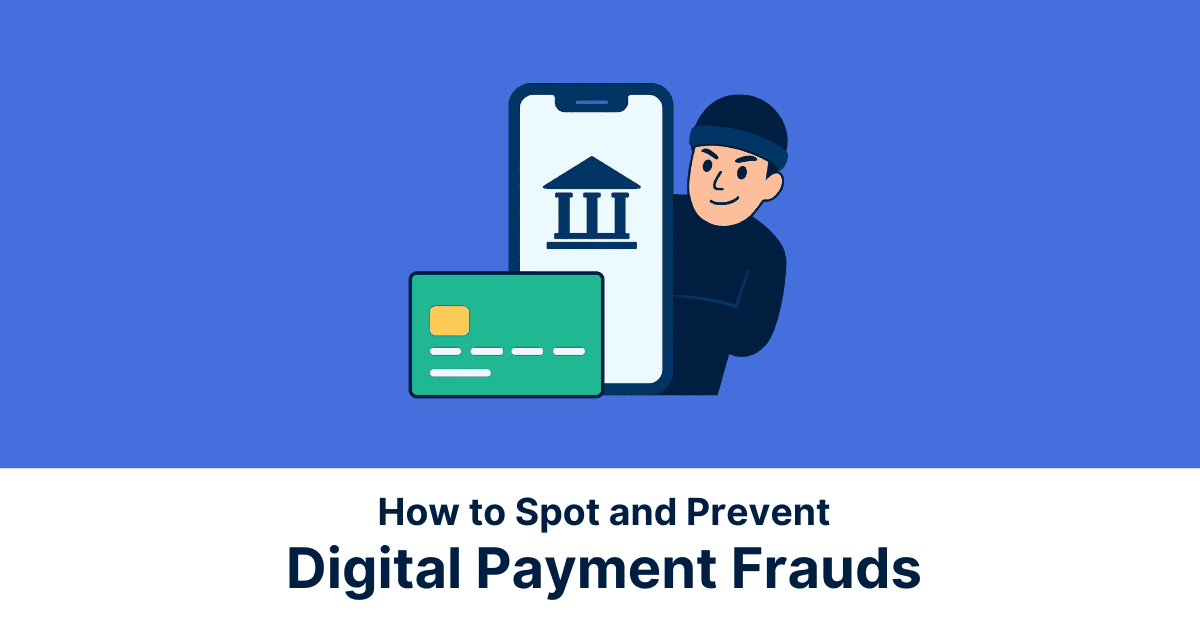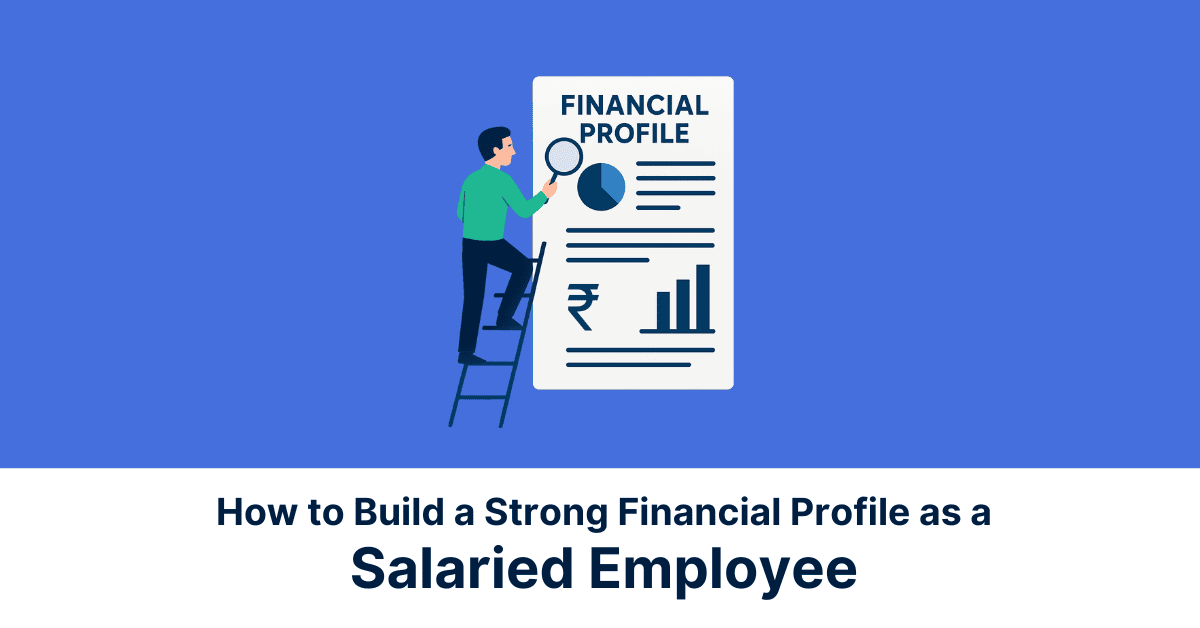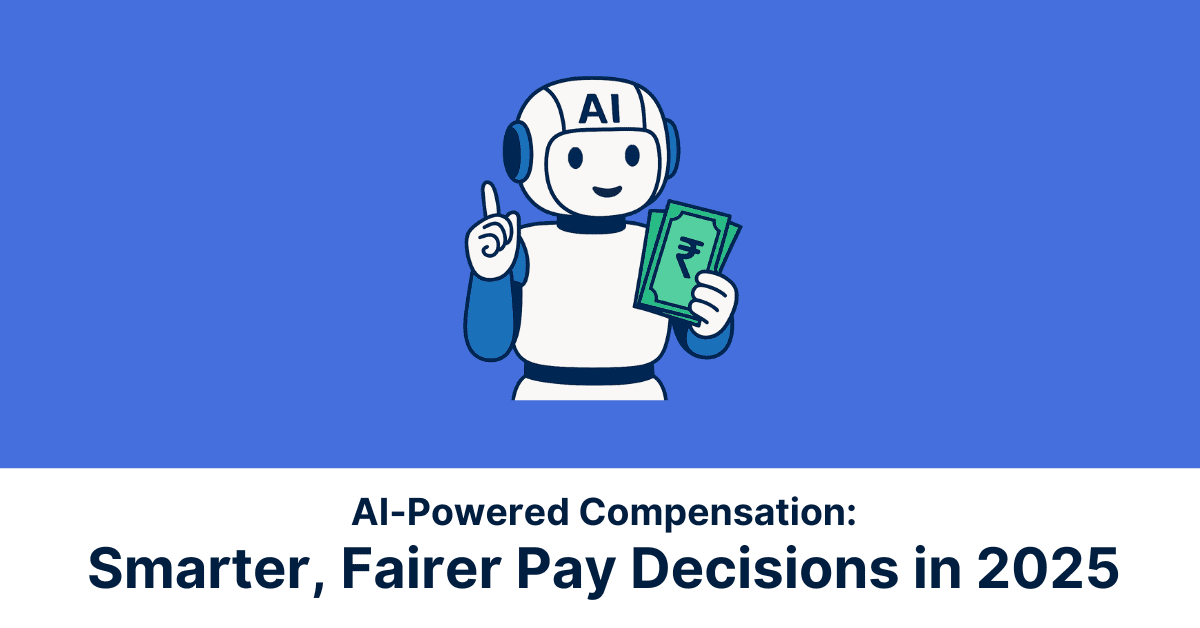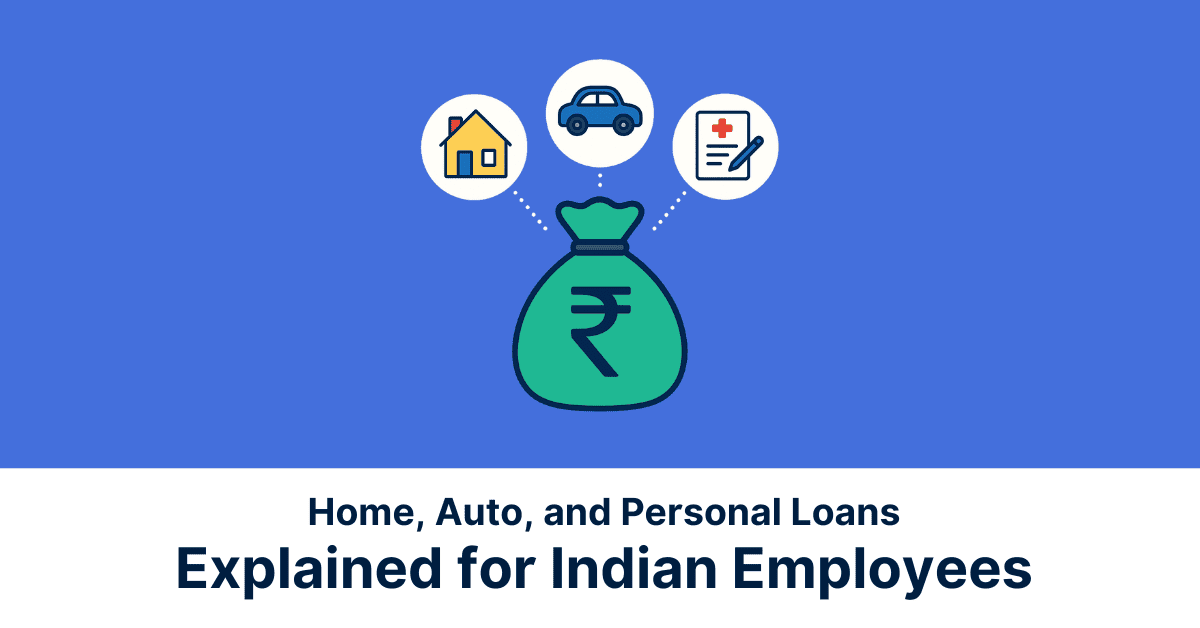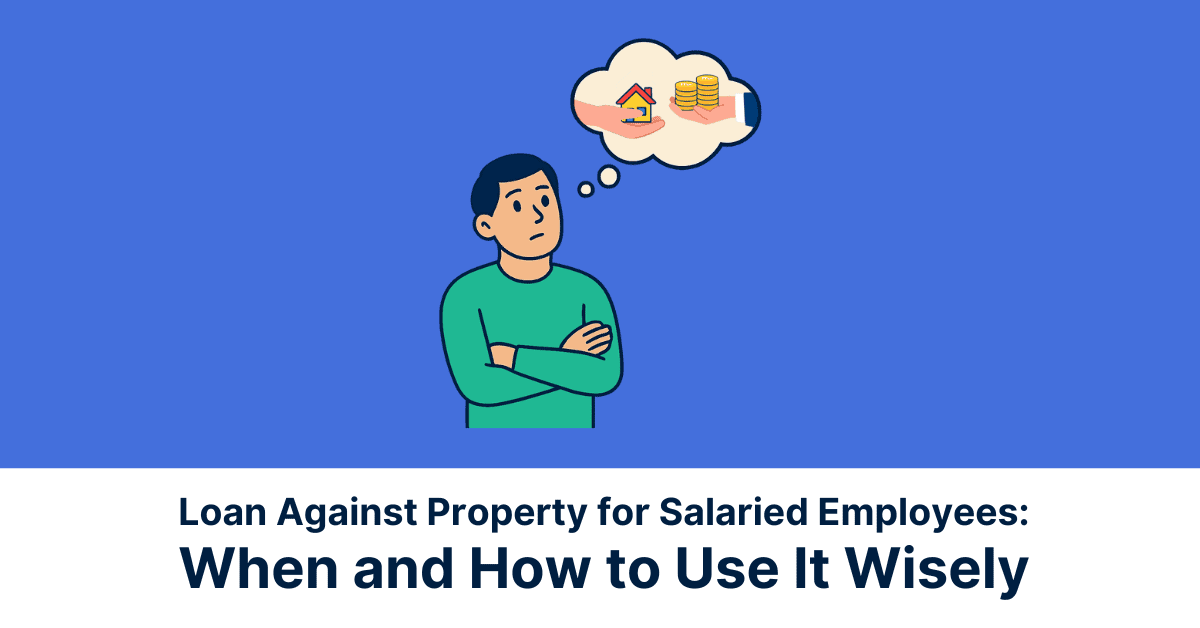When the economy takes a hit, terms like recession and stock market crash are often used interchangeably, but they mean very different things. A recession reflects a prolonged economic decline, while a stock market crash is a sudden, sharp drop in stock prices. Confusing the two can lead to poor financial decisions. For investors and decision-makers, knowing the difference is important to understand market downturns wisely and staying prepared for what’s ahead.
What is a Market Crash?
A stock market crash is a sudden and dramatic drop in stock prices across a significant portion of the market, often triggered by panic selling, economic shocks, or speculative bubbles bursting. These crashes typically occur over the course of days or even hours and are fueled by fear and uncertainty, causing investors to rapidly pull out of the market. While short in duration, a crash can have long-lasting effects on investor confidence and the broader economy.
Key Triggers of a Crash
A stock market crash doesn’t happen without warning signs, though they’re often overlooked. One of the most common triggers is overvaluation, where stock prices rise far beyond the actual value of the underlying companies, creating an unsustainable bubble. Speculative bubbles, driven by investor hype and herd mentality, can inflate prices rapidly. When the bubble bursts, panic selling sets in, leading to a sharp market drop.
Another major cause is unpredictable events like geopolitical conflicts, pandemics, or sudden economic shocks. These events can shatter market confidence and spark widespread fear, prompting investors to exit all together. Crashes can also be triggered by automated trading systems and margin calls, which accelerate the decline.
Examples of Past Market Crashes
- The 2008 Global Financial Crisis: The 2008 US financial crisis, stemming from the housing market collapse, significantly impacted India. Foreign Institutional Investors (FIIs) pulled out investments, this caused a sharp drop in the BSE Sensex and Nifty. While India’s strong domestic demand and banking system mitigated the damage compared to developed nations, export and manufacturing sectors faced challenges.
- The COVID-19 Crash (March 2020): Similar to global markets, the onset of the COVID-19 pandemic led to a dramatic fall in Indian stock markets. Nationwide lockdowns, travel bans, and widespread uncertainty about the economic impact caused investors to panic. On 23rd March 2020, the Indian stock market witnessed one of its worst single-day crashes. The downward spiral wasn’t limited to a single day. Within a week, the Sensex plunged from 42,273 to 28,288, erasing over ₹13.88 trillion in market value. The BSE Sensex and Nifty saw significant drops.
- Harshad Mehta scam in 1992: Though not a global crash, it was a watershed moment for India’s markets. Broker Harshad Mehta aka “The Big Bull of Dalal Street” illegally diverted funds from banks into the stock market, inflating stock prices. When the scam was uncovered, the market crashed, causing heavy investor losses and prompting major reforms in India’s financial regulations.
What Is a Recession?
A recession is an extended period of economic decline, typically defined by two consecutive quarters of negative gross domestic product (GDP) growth. During a recession, key economic indicators such as employment, consumer spending, and industrial output tend to fall. Unlike a sudden stock market crash, a recession develops more gradually and affects the broader economy over time. Recessions can be triggered by various factors, including high inflation, rising interest rates, or external shocks like geopolitical events or pandemics.
What Causes a Recession?
A recession is usually the result of multiple economic pressures building up over time. One major contributor is high inflation, which erodes purchasing power and raises the cost of living. As prices climb, consumers tend to cut back on spending, which is so crucial for economic growth.
In response to inflation, central banks often raise interest rates to slow down the economy. While this helps control inflation, it also makes borrowing more expensive for individuals and businesses, which can reduce investment and spending further.
Another critical factor is reduced consumer confidence. When people feel uncertain about the future, they tend to save rather than spend, which slows economic activity. Supply chain disruptions, global conflicts, and policy missteps can also contribute.
Impact on Jobs and Businesses
Recessions take a significant toll on both jobs and businesses. As consumer demand drops, companies earn less revenue and often respond by cutting costs, usually starting with layoffs. This leads to a rise in unemployment, making it harder for people to find work or keep existing jobs.
Even those who stay employed may face reduced wages, fewer working hours, or eliminated bonuses. Businesses, especially small and medium-sized ones, may struggle with declining sales and tighter access to credit, which can slow down operations or lead to closures altogether.
In a recession, the cycle of falling demand, job losses, and business cutbacks can reinforce itself, deepening the economic slump. Sectors like retail, manufacturing, and hospitality are often among the hardest hit, though the ripple effects can reach nearly every industry.
Market Crash vs. Recession: Key Differences
Crash Is Immediate, Recession Is Gradual
A stock market crash is a rapid and sudden event, often occurring within hours or days marked by sharp declines in stock prices driven by panic, speculation, or external shocks. Investors can lose significant value in a very short time, and the psychological impact is usually immediate.
While a recession is a gradual process, developing over weeks or months. It’s typically identified only after two consecutive quarters of negative GDP growth and is characterised by rising unemployment, shrinking business activity, and declining consumer spending. While a crash can trigger a recession, the two differ in pace and visibility. A crash shocks the financial markets suddenly, while a recession reflects a deeper, more prolonged economic weakening.
Not All Crashes Lead to Recession
While some stock market crashes have triggered economic downturns, not every crash results in a recession. Let’s take the example of India’s market crash in January 2008, when the Sensex plunged nearly 1,500 points in a single day after global fears around the U.S. subprime mortgage crisis. Though it shook investor confidence, India did not immediately slip into a recession. The domestic economy, driven by strong fundamentals, continued to grow, although at a slower pace.
Crashes are often influenced by market psychology, global shocks, or speculative trading rather than deep-rooted economic flaws. If core indicators like employment, industrial output, and consumer demand remain steady, the economy can withstand market volatility.
Different Impact on the Economy
A stock market crash primarily impacts investors, traders, and the financial sector. It can result in massive losses in wealth, lower investment returns, and temporary panic in capital markets. However, if the broader economy is stable, the effects may not reach everyday consumers or jobs.
A recession, on the other hand, has a far-reaching impact. Here, businesses face slower sales, hiring freezes, or closures; employees may experience job losses, wage cuts, or reduced hours; and consumers often scale back on spending due to uncertainty. Recessions affect real-world economic activity, not just market sentiment. While a crash can shake investor confidence, a recession undermines both consumer and business confidence, leading to a deeper and more sustained economic slowdown.
Why the Difference Matters for Investors
Emotional Reactions vs. Informed Strategy
For investors, knowing the difference between a market crash and a recession can mean the difference between panic and preparation. A crash often triggers emotional reactions like panic selling, which can lock in losses and derail long-term financial goals. But short-term volatility doesn’t always signal long-term economic damage.
By understanding the broader economic context, investors can avoid knee-jerk decisions and focus on fundamentals. A crash may present buying opportunities, especially if the underlying economy remains strong. In contrast, a recession may call for a more cautious and defensive approach. Staying informed helps investors remain calm and make smarter choices during turbulent times.
Adjusting Investment Strategy Accordingly
In a market crash, where declines are sharp but potentially short-lived, investors might focus on buying undervalued stocks, maintaining a long-term outlook, and avoiding drastic portfolio changes.
On the other hand, during a recession, it may be wise to shift toward defensive sectors like healthcare, utilities, or consumer staples, and reduce exposure to high-risk assets. Holding more cash or bonds can also help manage risk and provide liquidity. Diversification becomes even more critical, and rebalancing the portfolio to match the economic climate can protect investments. Tailoring your strategy to the situation ensures you’re reacting with insight, not fear.
Bottom Line
Knowing the difference between a stock market crash and a recession is essential for investors. A crash is a sudden, sharp fall in stock prices, often driven by panic or speculation. A recession, on the other hand, is a prolonged economic downturn marked by declining GDP, rising unemployment, and reduced spending.
While a crash can sometimes signal a recession, it doesn’t always lead to one. Each affects investments differently. Reacting emotionally like panic selling can be costly. Instead, financial literacy helps investors make informed, long-term decisions.
Staying invested, especially during downturns, often leads to strong gains when markets recover. For those feeling overwhelmed, a financial advisor can provide guidance, help assess risk, and ensure portfolio diversification.
Disclaimer: Information contained in this article is provided for information purposes only. It is not intended to provide or be a substitute for professional financial or investment advice and should not be relied upon in that regard. It also does not constitute a specific offer to buy and/or sell securities. You should always consult your financial advisor or tax specialist before undertaking any of the strategies discussed in this article.
